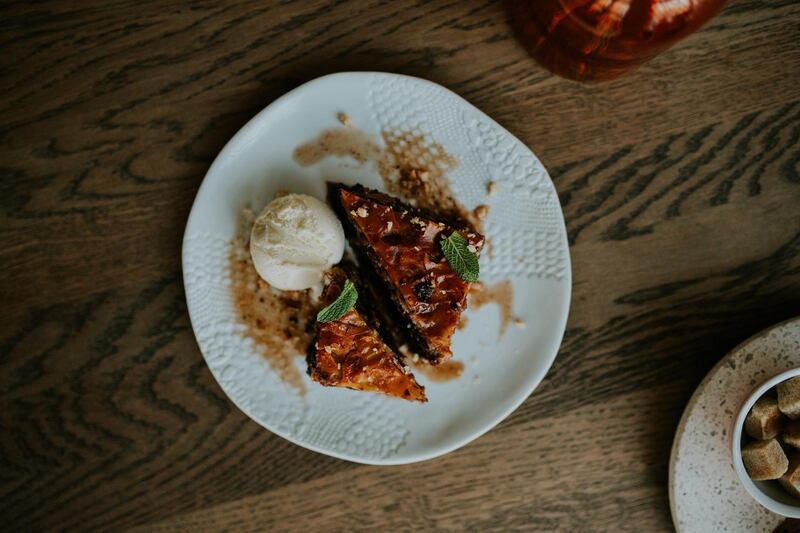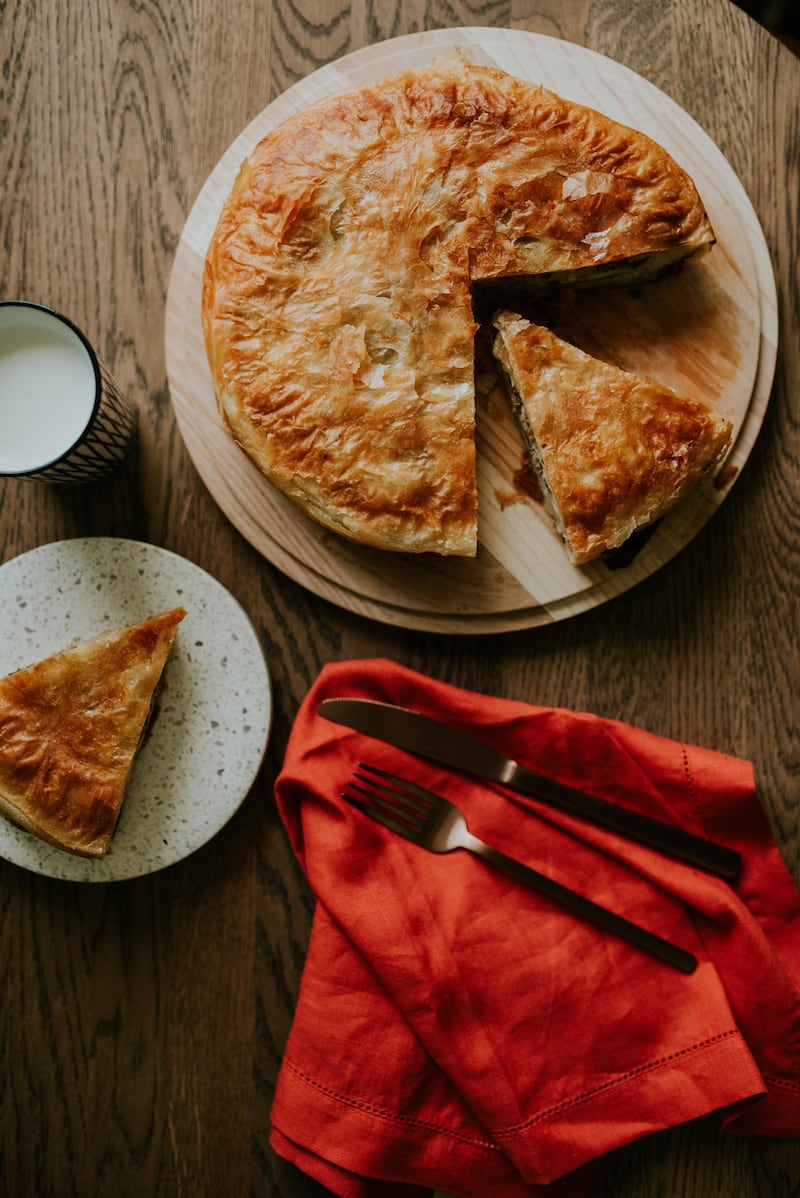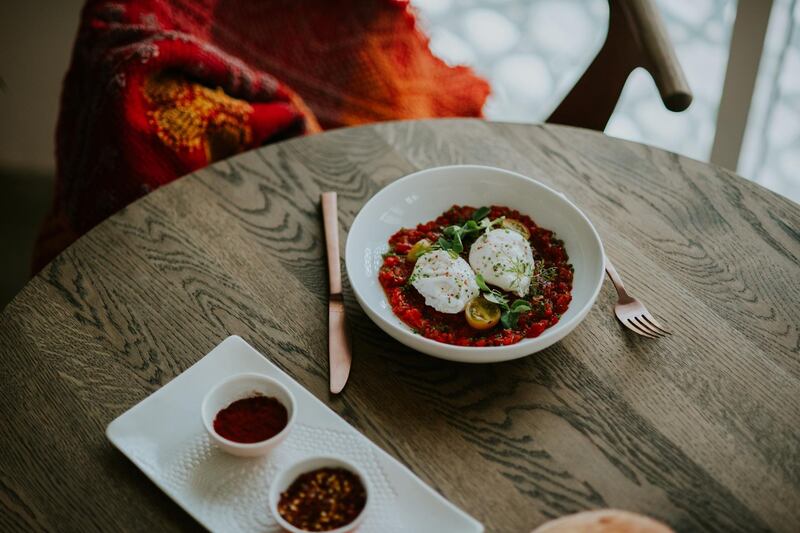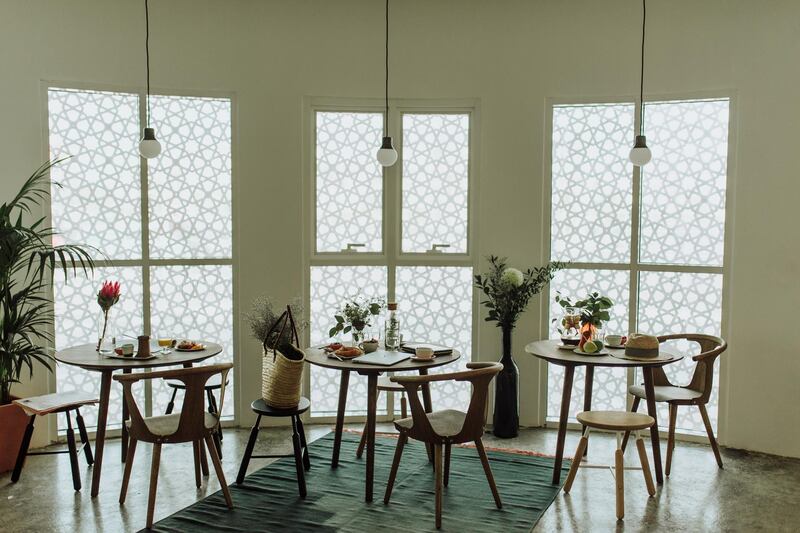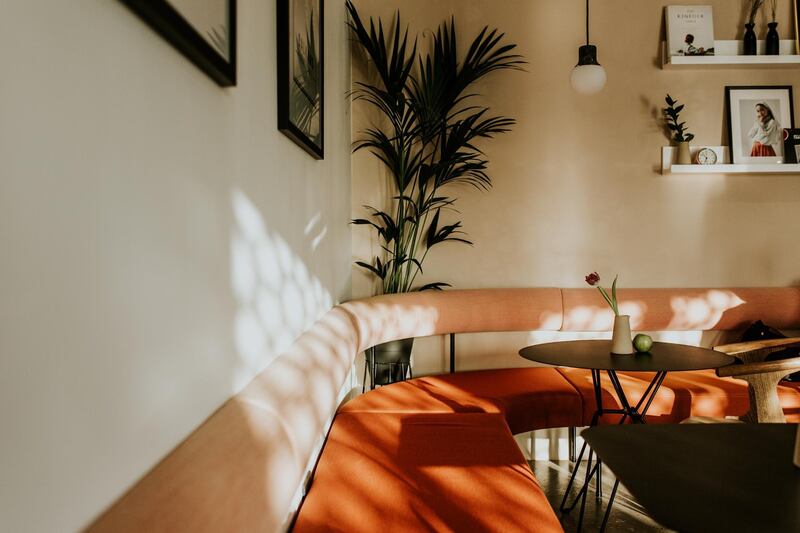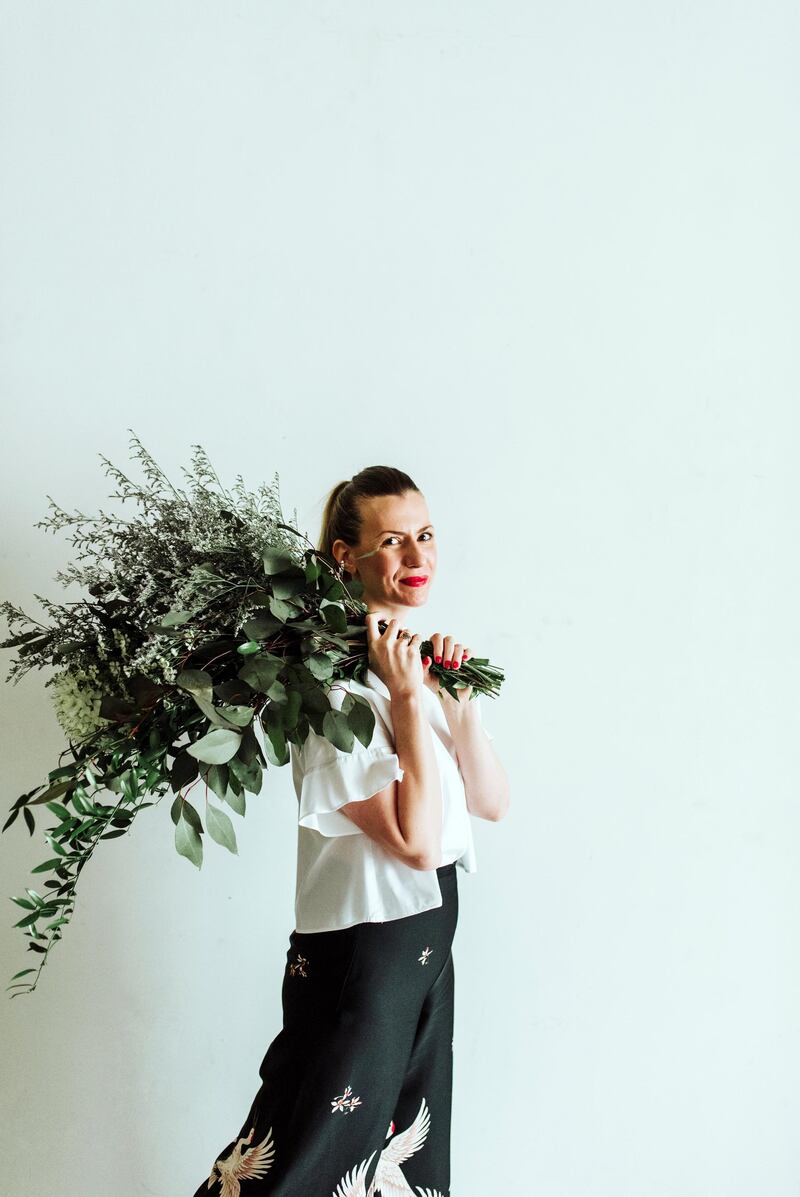Any ajvar is better than no ajvar, even if it doesn't taste quite like it would back home – so believes Stasha Toncev, the founder and owner of 21 Grams, the first restaurant in Dubai to serve food solely from the expansive Balkan Peninsula.
Often called the caviar of the Balkans, ajvar (pronounced ayvar) has chargrilled or roasted sweet red peppers as its main ingredient; to this can be added garlic, salt, oil, chilli peppers and/or aubergine, depending on the country it’s made in. The vegetable preserve is a popular accompaniment to most dishes, and can be served as a dip, spread or relish.
“Let’s face it, nobody can make a dish better than your mum back at home,” says Toncev with a laugh, when I meet her at the Jumeirah Road eatery on the ground floor of the recently opened Park Regis Boutique.
“Initially I was a bit worried about the preconceived notions and cravings that those who have grown up eating Balkan food would come with. But we are lucky because people have been very open-minded about the variations in flavour of even familiar dishes. Also, these signature foods often differ in taste from house to house, let alone from one town or one country to the other,” she says.
In the case of the Balkans, that would be about a dozen countries, including Albania, Bulgaria, Bosnia and Herzegovina, Croatia, Macedonia, Montenegro, mainland Romania, southern Serbia, and even bits of Greece, Turkey and Italy.
Over the centuries, various parts of the peninsula were controlled by at least three empires – the Ottomans, the Austro-Hungarians and the Italians. Accordingly, Balkan cuisine is a combination of these different influences, and includes a diet rich in breads, cheeses and meat.
"Instead of segregating dishes by country, we've tried to bring food from the mountains, valleys and coastal areas of the region at large, so while we have plenty of meat, there's also a focus on seafood, and heaps and heaps of fresh vegetables," Toncev says. "And what rice is to the Asians, bread is to those from the Balkans. There is no meal without it. It's an accessible dish that's almost always made fresh at home. That's why I insisted we have our own bakery at 21 Grams," she says. The name is a reference to a 1907 experiment that suggested the weight of the human soul is 21 grams.
Toncev recommends that newcomers to the cuisine sample the five mezze dishes that in-the-know diners invariably order, a starter kit to Balkan food, as it were: sarma (sour cabbage with meat), cevapi (meat patties in somun flatbread), burek (flaky dough filled with cheese or meat), kajmak (a savoury clotted cream cheese) and urnebes (red-hot chilli cheese).
Her two must-have mains, meanwhile, include a slow-cooked lamb in milk with poached apple; and pasticada, a dish from the Dalmatia region of Croatia, with hand-pulled beef, prunes, apples and cheese-stuffed gnocchi. “For vegetarians, we took a very popular Balkan dish – moussaka – traditionally made with meat, and recreated it with lentil and chickpea ragout, and layers of zucchini and aged cheddar.”
Modification is a big part of the menu. It has to be, Toncev says, because of two factors. Traditionally, most Balkan dishes are made to get through cold, harsh winters, for people doing physical work all day long. "Take sarma, for example. In Serbia, the cabbage is served with meat and rice, all of which are first fried and then oven-baked with dry meat, leaving it to cook in its own juices, which makes the dish very hearty.
"We avoid that in the UAE by substituting heavy oven-baked juices of the meat with a fresh tomato sauce. It's a simple twist but it lends lightness to the dish."
The second reason is the quality of produce, which Toncev claims is impossible to replicate in the UAE's mostly hot climes. "We buy only from local farmers and at organic markets every morning. I don't believe in shipping or flying products in from Europe or Australia; there's no freshness left," she says.
“Let me tell you a scary story. I once bought some beautiful red bell peppers from a high-end supermarket. Before I could eat them, I left for a four-week trip, forgetting the peppers in my fridge. I was dreading opening that fridge after a month but to my shock I found they had not a single wrinkle on them. They were exactly like the day they had been bought.
"And I thought to myself, if these peppers are able to stay so long without a blemish, having travelled from Australia and sat in a warehouse and on the shelf and in my house for however long, they must be pumped full of preservatives. Since then, I've bought only fresh regional produce, and it's made all the difference to my weight and well-being.
"Balkan food is very simple; there's not much by way of technique or presentation. Its strongest point is the flavours, which can only be obtained by using fresh ingredients."
In the near future, 21 Grams aims to become fully entrenched in the Slow Food Movement, where
produce imported from within 2,000 kilometres qualifies as slow food, which is typically produced or prepared using high-quality and locally sourced ingredients. Accordingly, Tonchev and Serbian head chef Uros are looking to India, Iran, Jordan and Syria at the peak of summer in the UAE.
She says: “It’s not only the food, I’d very much like the whole eating experience to be slow. In hospitality, staff are often trained to put up a sort of shield, only speaking as much as is necessary. But at 21 Grams, we want you to engage with the servers, all of whom are from the Balkans and can tell you some fascinating stories and histories of the dishes on your plate. For me, conversation adds such a nice touch to a meal. It’s a soulful experience in a very fast-paced city.”
______________________
Read more:
Home grown solutions: the rise and rise of the microgreen
Hidden Gems: The Art House Cafe, Al Bateen, Abu Dhabi
Abu Dhabi experiences: 8 hidden gems to try
Hidden gems: Enjoy Crunch & Munch Cafe in Khalidiya
Your essential guide to things to do in Abu Dhabi and Al Ain
______________________
